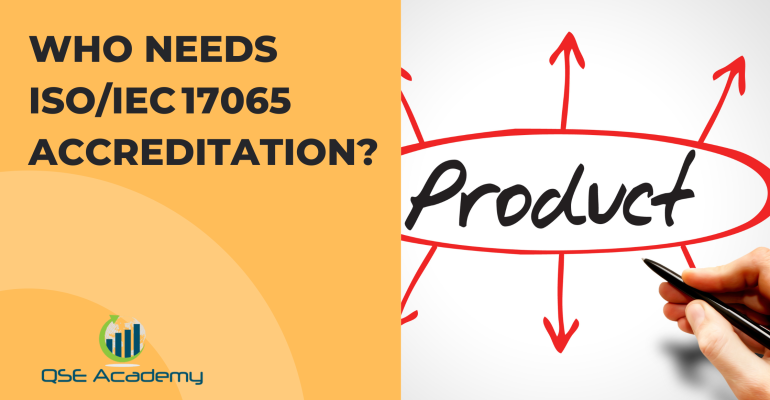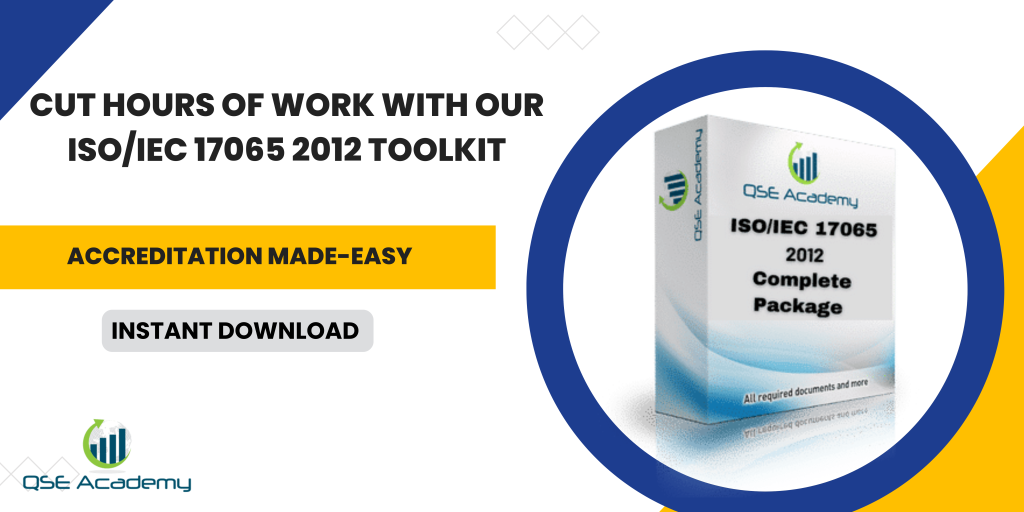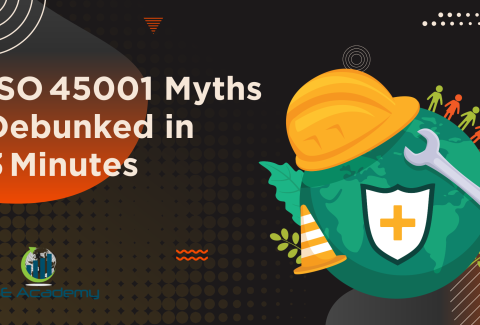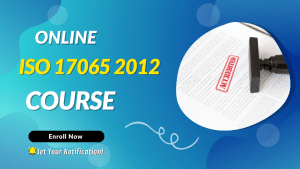Who Needs ISO/IEC 17065 Accreditation?
Last Updated on December 23, 2025 by Hafsa J.
Why This Question Matters
A lot of organizations get stuck right here—trying to figure out if they really need ISO/IEC 17065 accreditation.
I’ve had clients assume it’s just another “ISO badge,” but it’s much more specific than that.
If your business certifies products, services, or processes, this standard might be non-negotiable.
In this article, I’ll walk you through exactly who needs ISO/IEC 17065, why it matters, and how it impacts your credibility and market access.
Understanding ISO/IEC 17065: What It Covers and Why It Exists
ISO/IEC 17065 is the backbone of product certification.
It defines how a certification body must operate to prove that its evaluations are impartial, consistent, and technically competent.
In simple terms, it’s what gives trust to a certification mark.
When you see a CE mark, an organic label, or an eco-friendly logo, ISO/IEC 17065 is often the unseen framework behind it.
Pro Tip: Think of ISO/IEC 17065 as the “credibility passport” for organizations certifying tangible products or defined processes.
Example:
A certification body granting “Organic Certified” labels to farms must be accredited to ISO/IEC 17065. Without it, their certificates have no international weight.
 Organizations That Require ISO/IEC 17065 Accreditation
Organizations That Require ISO/IEC 17065 Accreditation
A. Product Certification Bodies
If your organization certifies physical goods—electronics, food, PPE, construction materials—then ISO/IEC 17065 is your standard.
You’re verifying that each product meets technical requirements or regulatory criteria.
Example:
A helmet-certification body testing against EN 397 standards uses ISO/IEC 17065 to ensure its decisions are technically sound and globally recognized.
B. Service and Process Certification Bodies
ISO/IEC 17065 isn’t only for physical items. It also applies to services or processes where defined conformity criteria exist.
Example:
A cleaning-service certifier using an eco-friendly standard, or a food-handling certification program verifying hygiene processes.
Pro Tip: If you issue certificates after evaluating service performance or process consistency, you fall under the 17065 umbrella.
C. Scheme Owners and Industry Associations
If you design or manage a certification scheme, you’ll likely require accredited certification partners operating under ISO/IEC 17065.
Example:
A national halal authority or organic farming board that sets conformity rules and appoints certification bodies to verify compliance.
D. Regulators and Governmental Agencies
Many government programs only accept certifications issued under ISO/IEC 17065 accreditation.
This ensures regulatory consistency and protects consumers from unreliable or biased assessments.
Example:
A national safety regulator approving electrical appliances or building materials will require 17065-accredited certification bodies to handle approvals.
When ISO/IEC 17065 Is Not the Right Fit
Not every organization needs 17065—and that’s where confusion often starts.
If you’re certifying management systems (like ISO 9001 or ISO 14001), your path is ISO/IEC 17021-1.
If you’re conducting inspections, it’s ISO/IEC 17020.
If you’re performing testing or calibration, you need ISO/IEC 17025.
Common Mistake:
I once met a lab that tried applying for ISO/IEC 17065 because they “tested products.” But they weren’t making certification decisions—just running analyses.
They needed ISO/IEC 17025, not 17065.
Pro Tip: The key question is simple: Do you test and evaluate products—or do you decide whether they’re certified?
If you make the certification decision, 17065 is your standard.
Benefits of ISO/IEC 17065 Accreditation
Here’s why it’s worth it:
- Market Recognition: Accreditation gives you international credibility through ILAC and IAF networks.
- Client Confidence: Manufacturers, regulators, and consumers trust certificates issued by accredited bodies.
- Regulatory Acceptance: Many industries legally require 17065 accreditation for export or tender eligibility.
- Operational Consistency: It brings structure to impartiality, competence, and certification decisions.
Example:
A PPE certifier I worked with couldn’t participate in national tenders until they achieved ISO/IEC 17065 accreditation.
Once accredited, they tripled their contracts in six months.
Real-World Examples: Who Actually Uses ISO/IEC 17065
- Food Industry: Organic, halal, fair-trade certifications.
- Construction: Building materials, coatings, and steel structure approvals.
- Cosmetics & Chemicals: GMP or safety compliance certification.
- Energy & Environment: Renewable-energy verification, green labels.
- Consumer Goods: Electrical safety, PPE, and household product compliance.
These are all sectors where trust in certified products is critical—and that trust starts with 17065 accreditation.
How to Determine If Your Organization Needs ISO/IEC 17065
Here’s a quick decision path I use with clients:
- Define what you certify. Is it a product, service, or management system?
- Identify your activity. Do you test and issue reports—or make certification decisions?
- Check scheme or legal requirements. Some industries explicitly require ISO/IEC 17065 accreditation.
- Consult your accreditation body. They can confirm which ISO standard aligns with your services.
Pro Tip: If you issue certificates declaring compliance to a standard—not just test results—you almost certainly need 17065.
FAQs
Q1: Can a testing laboratory apply for ISO/IEC 17065 accreditation?
No. Testing labs should go for ISO/IEC 17025. Only organizations making certification decisions on compliance need ISO/IEC 17065.
Q2: Is ISO/IEC 17065 mandatory for all certification bodies?
Not all—but for product, service, or process certifiers, it’s often required by law or customer demand.
Q3: Can one organization hold both 17065 and 17021-1 accreditations?
Yes. Many certification bodies do—just keep each scope separate and maintain distinct procedures.
Conclusion: Clarity Leads to Credibility
If your organization certifies products or services—and your clients rely on those certificates for compliance or market entry—ISO/IEC 17065 isn’t optional. It’s essential.
This accreditation signals impartiality, technical competence, and trustworthiness—the same qualities regulators and clients look for.
If you’re unsure whether ISO/IEC 17065 fits your organization, download QSE Academy’s “Do You Need ISO 17065?” Self-Assessment Checklist or book a quick consultation to define your accreditation roadmap.
I hold a Master’s degree in Quality Management, and I’ve built my career specializing in the ISO/IEC 17000 series standards, including ISO/IEC 17025, ISO 15189, ISO/IEC 17020, and ISO/IEC 17065. My background includes hands-on experience in accreditation preparation, documentation development, and internal auditing for laboratories and certification bodies. I’ve worked closely with teams in testing, calibration, inspection, and medical laboratories, helping them achieve and maintain compliance with international accreditation requirements. I’ve also received professional training in internal audits for ISO/IEC 17025 and ISO 15189, with practical involvement in managing nonconformities, improving quality systems, and aligning operations with standard requirements. At QSE Academy, I contribute technical content that turns complex accreditation standards into practical, step-by-step guidance for labs and assessors around the world. I’m passionate about supporting quality-driven organizations and making the path to accreditation clear, structured, and achievable.










